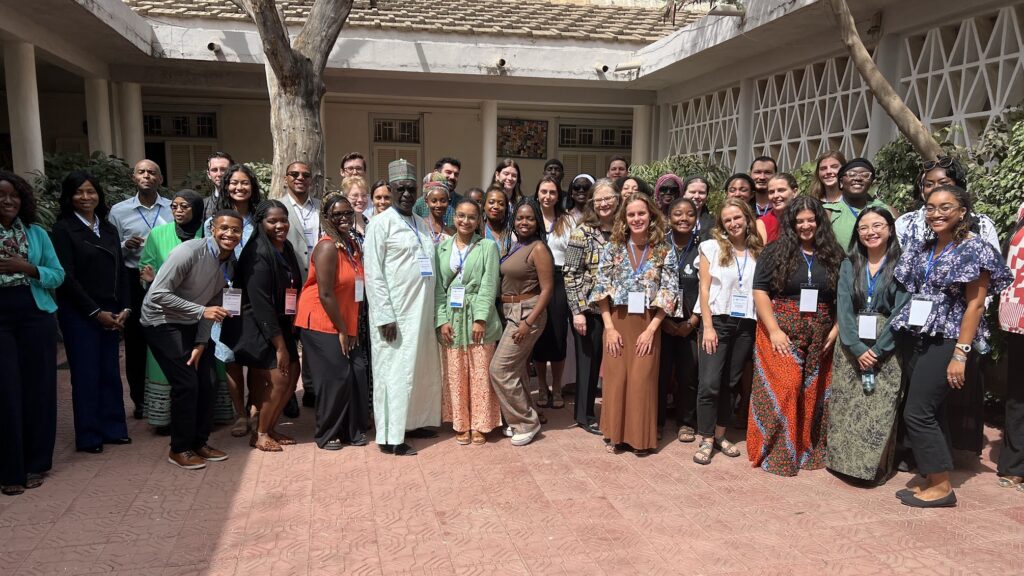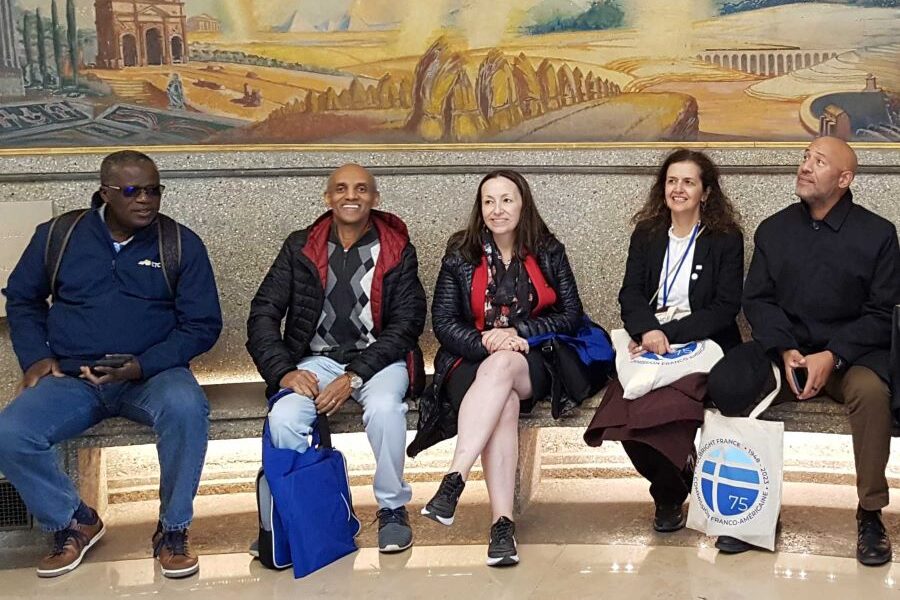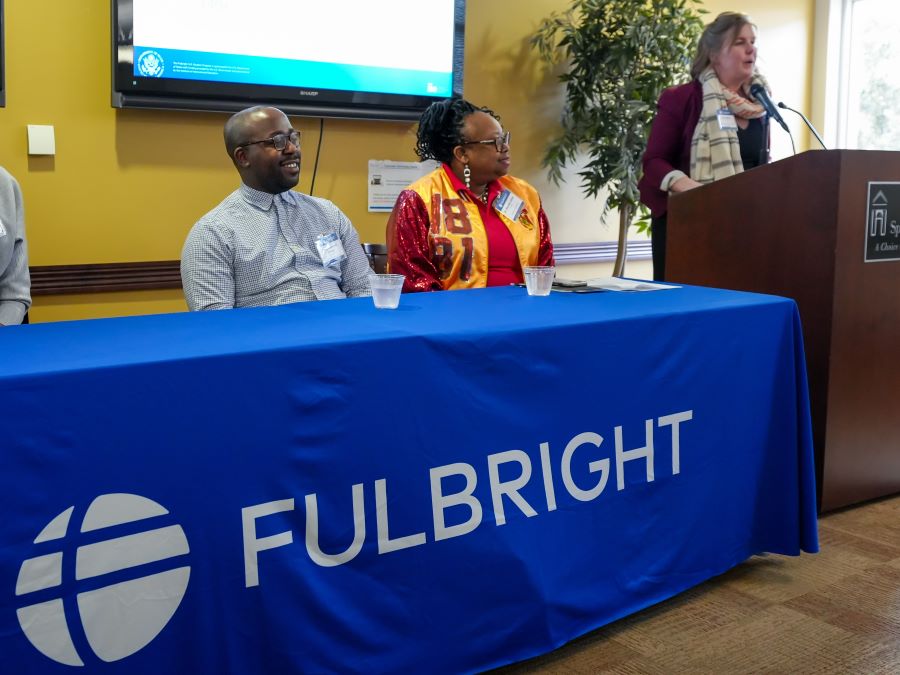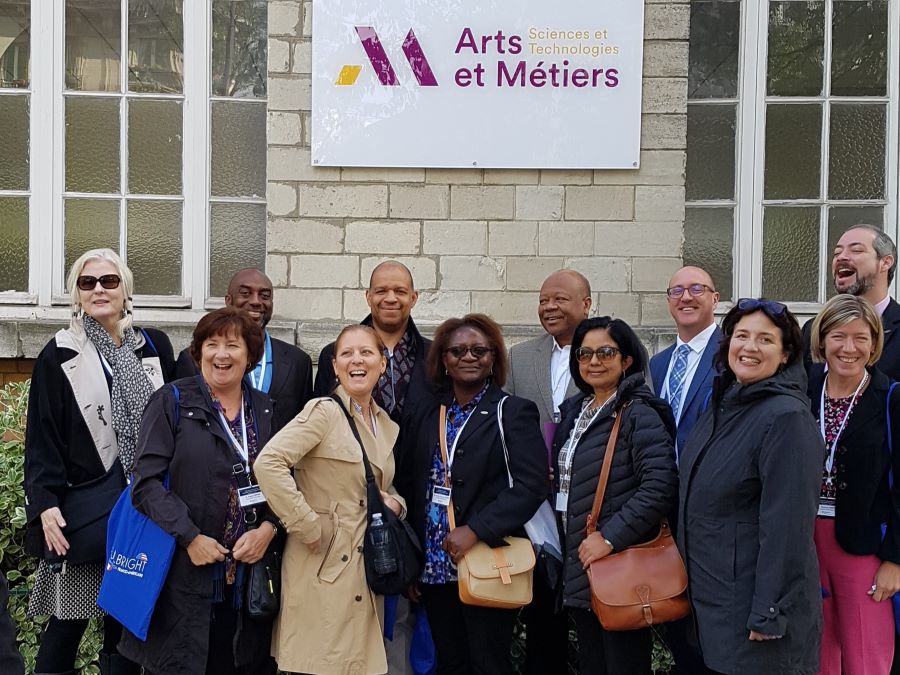The Fulbright U.S. Scholar Program has announced a new group seminar designed for higher education administrators from Historically Black Colleges and Universities (HBCUs) to build connections with institutions and peers in France and Senegal.
The inaugural Fulbright HBCU International Education Administrators (IEA) Seminar, scheduled for March 29 to April 12, 2025, will consist of briefings, campus visits, networking and cultural activities, and meetings with French and Senegalese higher education professionals and government officials.
The HBCU IEA Seminar is the latest addition to a series of Fulbright exchanges that give U.S. professionals the chance to learn about education systems in other countries and broaden their networks. While all IEA seminars welcome applicants from HBCUs, the new France and Senegal seminar offers HBCU professionals experiences tailored specifically to their unique academic context.

The new program is designed for senior level HBCU administrators who have substantial responsibility for enhancing the international dimensions of their institutions, such as university presidents, provosts, deans, international education administrators, and directors of study abroad offices.
Dr. Koffi Akakpo and Dr. Yacob Astatke both participated in the 2023 Fulbright IEA Seminar to France. Akakpo is now the president of Kentucky State University, an HBCU, and reflects on the Fulbright seminar as an important opportunity for minority-serving institutions to “share experiences and challenges,” and to learn about ways that peer institutions “have overcome them.” Astatke, an international affairs leader at Morgan State University, said the seminar helped expand connections between faculty and staff at Morgan State with counterparts in France, resulting in budding research, study abroad, and student exchange collaborations.

Dr. Rhonda Collier, the director of the global office at Tuskegee University and a Fulbright Scholar to Brazil, says that taking part in the Fulbright IEA Seminar to Taiwan provided an “amazing” opportunity to “learn about the culture and the profession” and network with fellow participants, educators, and government officials. She found that visiting universities in Taiwan enabled her to advise Tuskegee students on study abroad and to “speak effectively to the students and parents regarding security and opportunities for learning in Taiwan.”
While HBCU administrators can apply to any of the IEA seminars, Collier notes that the program in France and Senegal is ideal for HBCUs, as it brings together a cohort that understands the historical value and rich academic tradition of HBCUs in the United States.

Dr. Keshia Abraham participated in an IEA to India as a dean and department chair at an HBCU. She reports that the seminar expanded her thinking about program models, interdepartmental collaborations, and “how we tell our institutional narratives.” Having the comparative experience with another education system continues to benefit her and helps “frame the need for greater personal experiential learning to enhance how we work in communities around the world.”
Collier, Astatke, and Abraham also note that the IEA Seminar can help administrators address specific challenges at HBCUs. Collier explains that institutions abroad may only be aware of the most famous American universities, so face-to-face meetings can best communicate the value of exchanges with HBCUs to potential partners. Astatke notes that funding constraints often limit HBCU administrators’ ability to travel abroad and engage in international partnership discussions, but the Fulbright IEA award allows HBCU stakeholders to explore international collaborations and expand their campus and curriculum internationalization efforts.
Charlotte Goodwin from the Fulbright Commission in France says that the HBCU IEA seminar participants “will come away with an understanding of the structure of the higher education system in France, and the types of degree and research programs on offer, so that they will be better equipped to reach out to prospective partners” at different types of institutions. The Fulbright Program sets up one-on-one networking events, so the HBCU IEA participants can engage in targeted conversations with relevant university presidents, directors of international centers, professors, and researchers.

In Senegal, Fulbright is partnering with the West African Research Center, through the Council of American Overseas Research Centers (CAORC). Ousmane Sène, the Center’s director and a former Fulbright Scholar to the U.S., highlights the importance for participants to understand the context of the Senegalese education system, where the majority of universities are public and government-run. Sène says the seminar is a “golden opportunity” for HBCU administrators “to develop ties with foreign higher education institutions.”
Sène is confident these discussions, both in formal settings and over shared meals, will pave the way for “further collaboration and cooperation for higher education institutions on both sides of the Atlantic.” He notes that future “faculty, student, and researcher exchanges and visits are quite possible.”
The HBCU IEA seminar also includes activities to promote cross-cultural understanding such as local history walking tours and cultural visits. In France, participants may visit the New World Museum in La Rochelle. In Senegal, the group will meet with experts at the Museum of Black Civilizations and the Institut Pasteur, one of the largest vaccine producers on the continent.
Abraham emphasizes the value of the “time and space” that the IEA program creates for intercultural learning and relationship building, both within the cohort and with local institutional hosts. She says the ability to “build greater rapport with international populations on our campuses” is important, given the global nature of institutions today, and shares that participants “come away from this program feeling more confident speaking with inbound or outbound students, faculty or other administrators engaged with the host country.”
On a broader scale, Abraham observed that the opportunity to internationally represent what makes HBCUs culturally and historically significant to the U.S. higher education landscape helped her “find language and clarity” to speak about the importance of HBCUs to the international education community and faculty in the United States.